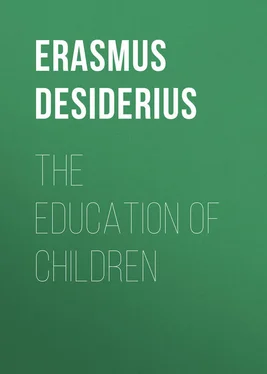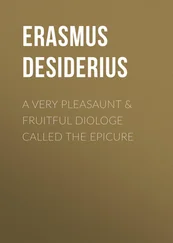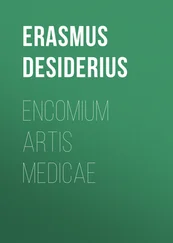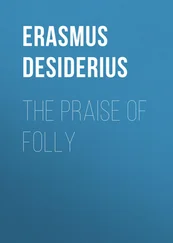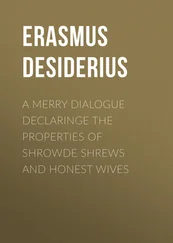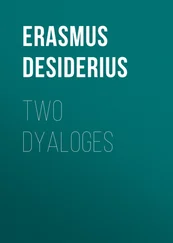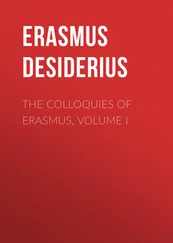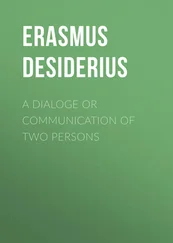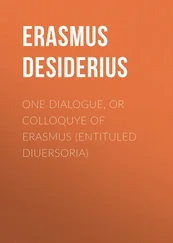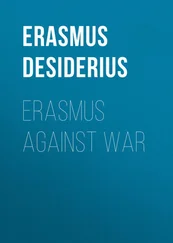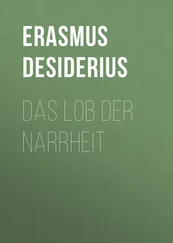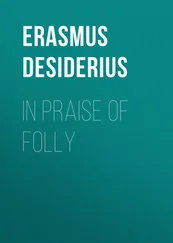Desiderius Erasmus - The Education of Children
Здесь есть возможность читать онлайн «Desiderius Erasmus - The Education of Children» — ознакомительный отрывок электронной книги совершенно бесплатно, а после прочтения отрывка купить полную версию. В некоторых случаях можно слушать аудио, скачать через торрент в формате fb2 и присутствует краткое содержание. Жанр: foreign_edu, foreign_antique, foreign_prose, на английском языке. Описание произведения, (предисловие) а так же отзывы посетителей доступны на портале библиотеки ЛибКат.
- Название:The Education of Children
- Автор:
- Жанр:
- Год:неизвестен
- ISBN:нет данных
- Рейтинг книги:5 / 5. Голосов: 1
-
Избранное:Добавить в избранное
- Отзывы:
-
Ваша оценка:
- 100
- 1
- 2
- 3
- 4
- 5
The Education of Children: краткое содержание, описание и аннотация
Предлагаем к чтению аннотацию, описание, краткое содержание или предисловие (зависит от того, что написал сам автор книги «The Education of Children»). Если вы не нашли необходимую информацию о книге — напишите в комментариях, мы постараемся отыскать её.
The Education of Children — читать онлайн ознакомительный отрывок
Ниже представлен текст книги, разбитый по страницам. Система сохранения места последней прочитанной страницы, позволяет с удобством читать онлайн бесплатно книгу «The Education of Children», без необходимости каждый раз заново искать на чём Вы остановились. Поставьте закладку, и сможете в любой момент перейти на страницу, на которой закончили чтение.
Интервал:
Закладка:
Desiderius Erasmus
The Education of Children
If thou wilt harken vnto me, or rather to Chrisippus, the sharpeste witted of Philosophers, yu shalte prouide yt thyne infante and yonge babe be forthewyth instructed in good learnyng, whylest hys wyt is yet voyde from tares and vices, whilest his age is tender and tractable, and his mind flexible and ready to folowe euery thyng, and also wyl kepe fast good lessons and preceptes. For we remẽber nothynge so well when we be olde, as those thynges yt we learne in yonge yeres. Diuision of yt confutaciõ Care not thou for those fooles wordes which chatter that thys age, partly is not hable inough to receiue discipline, & partlye vnmete to abyde the labours of studies. For fyrst, the beginninges of learning, stãd specially by memorie, which as I sayd, in yõg ones is very holdfast. Secondly because nature hath made vs to knowledge the study of yt thynge can not be to hasty, wherof ye author of al thyng her self hath graffed in vs ye seedes. Beside this some thinges be necessary to be knowẽ whẽ we be sũwhat elder, which by a certẽ peculier readines of nature, ye tender age perceiueth both much more quickly, & also more esily thẽ doth ye elder, as ye first beginnings of letters, ye knowledge of tõges, tales & fabels of poetes. Finallye, why shulde yt age be thought vnmete to lerning, which is apt to lerne maners? Or what other thinge shuld chyldrẽ do rather whẽ they be more able to speake, seyng nedes thei muste do sumwhat? How much more profite is it yt age to sporte in letters, then in trifles? Thou wilt say yt it is but of litle value yt is done in those fyrste yeres. Why is it dispised as a smal thing, which is necessary to a very greate matter? And why is yt lucre, be it neuer so litle, yet a lucre, dispised of purpose? Now if you oftẽ put a lytle to a litle, there riseth a greate heape. Herewith cõsider this also, if beyng an infant he lerne smaller thinges, he shalt lerne greter, growynge vpwardes in those yeres, in which those smaller shuld haue ben lerned. Finally whyle he doth these thinges, at ye least he shal be kept frõ those fautes, wherwt we se comẽly yt age to be infected. For nothynge doth better occupy ye whole mynd of man, thẽ studies. Verely this lucre ought not to be set light bi. But if we shuld graũte that by these labours ye strength of ye body is sumwhat diminished; yet thinke I this losse well recõpensed by winnynge of wyt. For the minde by moderate labours is made more quicke, & lustye. And if ther be any ieopardy in this pointe, it may be auoyded by our diligẽce. You must haue for this tender age a teacher to enter it by fayre meanes, & not discorage it by foule. And ther be also some things both plesaũt to be knowen, & as it wer sibbe to childrẽs wittes, whiche to lerne is rather a play thẽ a labour. Howbeit childehod is not so weake which euẽ for thys is ye more mete to take paynes & labour, because they fele not what labour is. Therfore if thou wylte remember how far vnworthy he is to be counted a mã which is void of learning, and how stirring the life of man is, how slypper youth is to myschiefe, and mans age howe it desyreth to be occupied, how baren olde age is, and further how few come vnto it, thou wylt not suffer thy yong babe in the whych thou shalte lyue styll as it were borne agayne, to let go any parte of hys tyme vnoccupied, in the whych any thynge maye be gotten that eyther maye do muche good to all ye whole lyfe afterwardes, or kepe it awaye from hurtes, and mischiefes.
After the longe despayred fruitfulnes of thy wyfe, I hearsay thou art made a father, and that wyth a man chylde, whyche sheweth in it selfe a meruelous towardnes, and euen to be lyke the parentes: and that if so be we maye by such markes t the fast holdyng bryers of vices. ¶ Yea rather euẽ now loke about for some man, as of maners pure & vncorrupt, so also wel learned: & into his lap deliuer your litle chyld, as it wer to a nurse of hys tẽder mind, that euẽ wt his milke he may sucke in swete lerning: & deuide the care of thy litle sõne to his nurses & teacher that they shuld suckun the litle body wt very good iuyce, & so indue hys mynd wt very wholsom opinions, & very honest lernynge. For I thinke it not conuenient that yu one of al the best learned, & also wysest shuldest geue care to those piuyshe women, or vnto mẽ very lyke to thẽ the beard excepted, whych by a cruell pytie, & hateful loue, iudge that the chyldren euen vntyl they waxe springoldes, shuld be kept at home kyssyng theyr mothers, and among the sweete wordes of theyr nurses pastymes, and vnchaste trystynges of seruauntes and maydens. And thynke that they ought vtterlye to be kepte awaye from learnyng as t the weakenes of the chyldrẽ shuld be vexed. Whyle I proue euery of these thynges false, I pray you a lytle whyle take hede, countyng as the truth is, fyrst that these thynges be writtẽ of him which loueth you as wel as any mã doth, & inespecially of yt thing which so perteineth to you, yt none can do more. t thei do leudly & also vntowardli which in tilling their lãd building their houses, keping their horse, vse ye gretest diligẽce thei cã, & take to counsell men yt be wyse, & of great experience: in bringing vp and teachynge theyr chyldren, for whose sakes al other thinges ar gotten, take so litle regard that nether e body that is sene, hathe lyen hyd in the secrete place. or housebande manne wolde haue it to serue for, excepte oure dylygence helpe nature? The sooner it is donne, the better will it come to passe.
t shuld shew hym self a trustye and healpynge sonne in a lawe, a good husbande to his wife, a valiaunte and profitable citizen to the common wealthe, I saye to haue suche one, eyther they take no t shal be heire of thẽ can not vse thẽ? With vnmesurable studye be possessions gotten, but of the possessor we take no kepe Who prepareth an harpe for the vnskylfull of musycke? Who garnysheth a librarie for hym that can skyl of no bookes? And are so great ryches gotten for hym whyche can not tell howe to vse them? If thou gettest these thynges to hym that is well broughte vp, thou geueste hym instrumentes of vertue: but if thou get them for a rude and rusticall wytte, what other thynge doest thou then minister a matter of wantonnesse and mischiefe? What canne bee thoughte more folyshe then thys kynde of fathers? They prouide that the bodie of the sonne maye be wythout faute, and shulde bee made apte to do all manner thynges comelye, but the mynde, u markest to what vse he is good, & trimly thou bryngest hym vp to some craft, either of e hyest place of the citye, & there crie out as loud as he could, & caste them in the teeth wyth theyr madnesse in this wyse. You wretches what madnesse driueth you? Take you suche thought to gette money and possessions, & take you no care for your children for whom you get these thynges? As they be scante halfe mothers whych onlye bringe forth, and not vp their chyldren, so be they scante halfe fathers, which when they prouide necessaries for theyr chyldrens bodies, euẽ somuch t in the playing place one stone sytte not vpon an other. Very properly another Philosopher Diogenes I trowe, bearynge in the mydday a candle in his hand, walked aboute the market place that was full of men: beinge axed what
¶ It is sayde that beares caste oute a lumpe of fleshe wythout anye fashion, whych wyth longe lyckyng they forme and brynge into a fashyon, but there is no beares yonge one so euyll fauored as a manne is, borne of a rude mynde.
u forme and fashion this, thou shalt be a father of a monster and not of a man. e best maner, that matter that will obey & folow in euery poynt. If thou wylt slacke to do it, thou hast a beaste: if thou take hede thou hast, as I myght saye, a God. Chyldren euyl broughte vp, brynge shame to their parẽtes Agayne into what shames and greate sorowes they cast their parentes that bee euyll broughte vp.
Читать дальшеИнтервал:
Закладка:
Похожие книги на «The Education of Children»
Представляем Вашему вниманию похожие книги на «The Education of Children» списком для выбора. Мы отобрали схожую по названию и смыслу литературу в надежде предоставить читателям больше вариантов отыскать новые, интересные, ещё непрочитанные произведения.
Обсуждение, отзывы о книге «The Education of Children» и просто собственные мнения читателей. Оставьте ваши комментарии, напишите, что Вы думаете о произведении, его смысле или главных героях. Укажите что конкретно понравилось, а что нет, и почему Вы так считаете.
